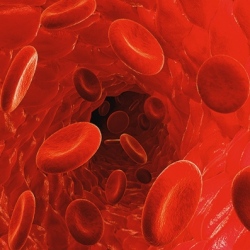
“We’re just about to embark on the very first human clinical trials of gene silencing in Huntington’s disease,” Leavitt told Metro. “This is really the first time we feel that we have something that’s going to have a major impact on the disease.”
Huntington’s disease, a genetic neurodegenerative disorder that causes abnormal involuntary movements, psychiatric symptoms and dementia, is caused by a single gene mutation that results in an abnormal huntingtin protein.
The upcoming clinical trial wouldn’t be possible without a new ultra-sensitive test that allows scientists to measure the mutant protein in the cerebrospinal fluid of Huntington’s disease patients, said Leavitt.
Along with a team of international scientists, Leavitt developed the new test that is highlighted in a study published this week in the Journal of Clinical Investigation.
Researchers found that the level of mutant protein is higher in patients with more advanced disease. The concentration of mutant protein also predicts the severity of movement and cognitive problem in patients, according to the study.
For the clinical trial, scientists will use the test to monitor the effect of the drug in reducing the mutant protein in the brains of Huntington’s disease patients.
The drug, which was developed by California-based Isis Pharmaceuticals, will be administered into the patients’ cerebrospinal fluid to “turn off” the mutant gene in the brain, said Leavitt.
“This is the first time that we’re able to measure the levels of this protein (in cerebrospinal fluid) that we’re now trying to knock down with this exciting new therapeutic agent,” he said.
For Leavitt, who has spent his career treating up to three generations of Huntington’s disease patients, the clinical trial is an exciting development. However, he said more funding is needed to continue research.
